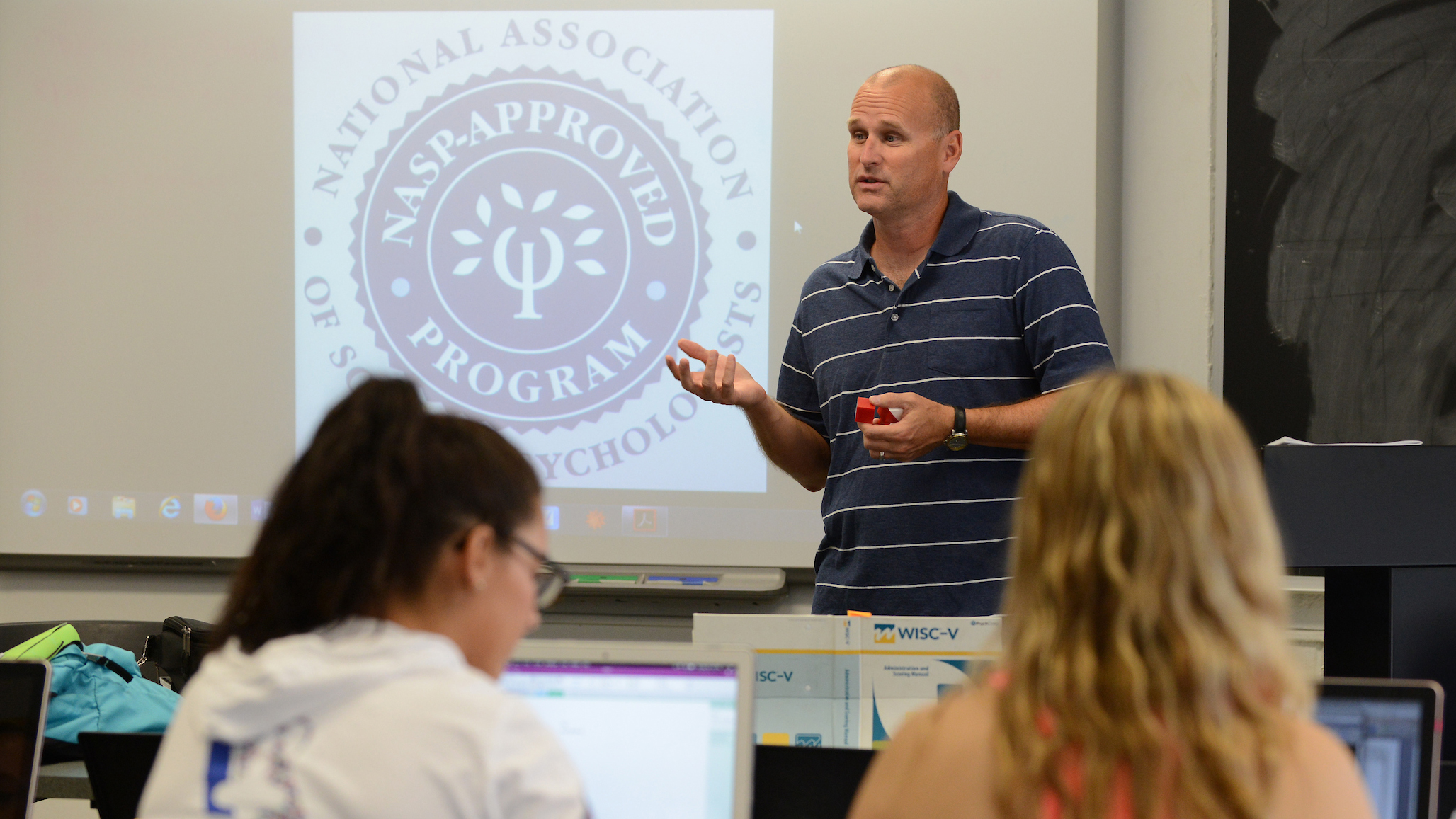Tuesday, Feb 26, 2019
Journal of School Psychology bestows award on Dr. Stefan Dombrowski
by Keith Fernbach
An article co-authored by Dr. Stefan Dombrowski, a professor in Rider University’s school psychology program, was recently named 2018 Article of the Year by the Journal of School Psychology.
The article, “Cognitive profile analysis in school psychology: History, issues, and continued concerns,” was chosen from among the 62 articles published by the journal in 2018.
This accolade was very meaningful to Dombrowski, he says, because the Journal of School Psychology is considered one of if not the most rigorous journals in the field, and also one of the most difficult to be published in.
However, he says what was most special about winning the award is that the decision was made by his peers.
In the initial round of the selection process, the journal’s editorial board and members from the Society for the Study of School Psychology (SSSP) nominated three articles as finalists. Then, a committee comprised of six SSSP members selected Dombrowski’s article, which was co-authored by Dr. Ryan McGill from William and Mary and Dr. Gary Canivezc from Eastern Illinois University, as the winner. The SSSP is comprised of 129 members worldwide who were admitted into the society for their sustained contributions to the field of school psychology.
“This was a big honor because it wasn’t a popularity contest — it was voted on by the top scholars in our field and they chose our article as the best in the journal for this particular year,” Dombrowski says.
The article examines the use of IQ tests, and in particular, whether or not the interpretation of test results suggested by their publishers are scientifically valid. The authors give specific focus to tests that have been created within the last 20 years, because while there have been previous studies questioning the empirical validity of the test interpretations, a number of new methods, including one called cross-battery assessment, have become popular in the last two decades.
What the authors found through their research is that the data doesn’t support the claims being made by the test publishers, which they say is concerning because it can lead to children being misdiagnosed.
“The test publishers are saying there are various dimensions to an IQ test that can be used to come up with a diagnostic profile,” says Dombrowski. “For example, one might say, ‘This result is diagnostic of learning disabilities’, or ‘this is diagnostic of autism spectrum or ADHD,’ or ‘this is suggestive that a child might struggle with reading or math or writing.’ But the empirical evidence doesn’t support using an IQ test in this way.”
In fact, research shows that when done prospectively, cognitive profile analyses within an IQ test are accurate about 50 percent of the time. “This suggests that we are about as accurate in our diagnostic predictions as a coin flip,” he says.
Dombrowski surmises that test publishers who are making a profit from use of their manuals and interpretive guides have a conflict of interest and perhaps little incentive to regulate the validity of their claims. “You have commercial interests overriding empirical interests,” he says. “It’s kind of like going to the barber and asking the barber if you need a haircut. I’d put my money on someone who is not a barber and just looking at your hair, versus the barber who stands to make a profit.”
Nevertheless, he is hopeful that his peers are acknowledging that change is necessary. “The biggest takeaway message (from being named article of the year) is that I think the field recognizes that we need to emphasize an empirically-guided approach to IQ test interpretation,” he says. “And so they’re saying, ‘we should be spending our time and energy training students in more empirically-guided means to look at the evidence.’”
In recognition of receiving this award, Dombrowski and his co-authors have been invited to present their findings at the 2020 National Association of School Psychologists conference.
Rider’s school psychology program is one of only seven such programs in the state of New Jersey with full accreditation by National Association of School Psychologists (NASP), which is the world's largest organization of school psychologists. The organization represents more than 25,000 school psychologists, graduate students and related professionals throughout the United States and 25 other countries. It works to advance effective practices to improve students' learning, behavior and mental health.
Rider's program is dedicated to providing future school psychologists with traditional and contemporary training from faculty who are active researchers and well-regarded on the national landscape. In 2016, Dombrowski was ranked as the 12th-most productive school psychology researcher in the country. That same year, student Helizhabeth Cabrerra received the nationally competitive NASP minority scholarship award, and in 2009, John Lestino '09 was the only individual selected across the nation by NASP to receive the school psychologist of the year award.

